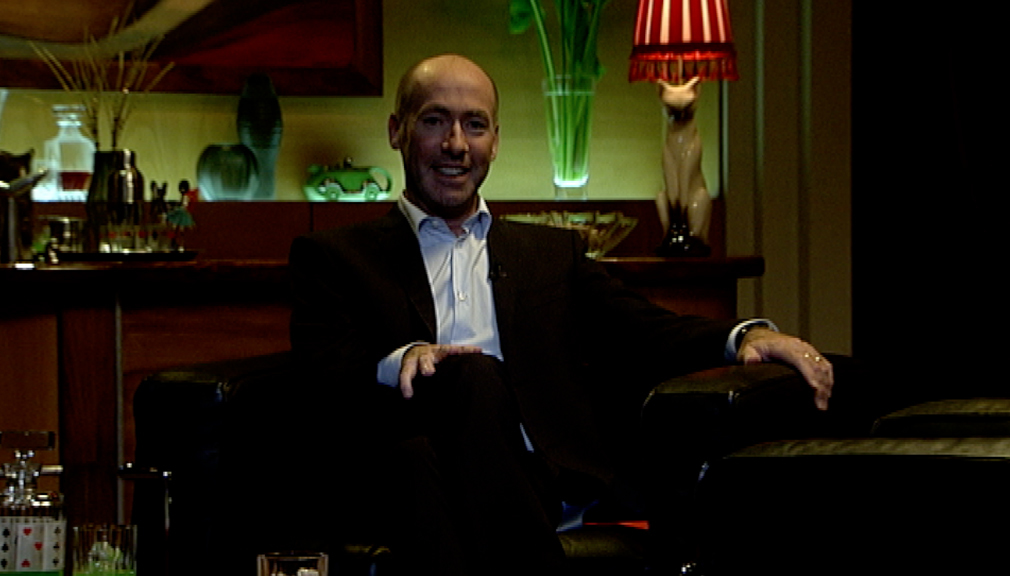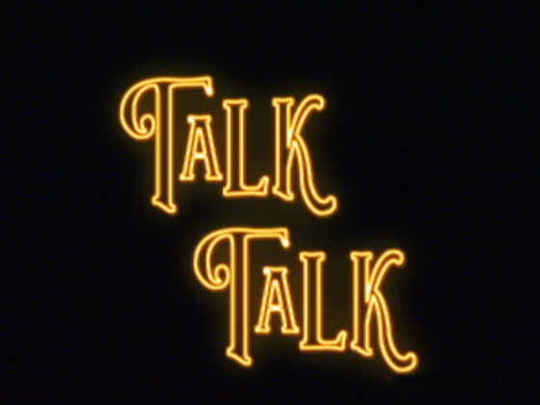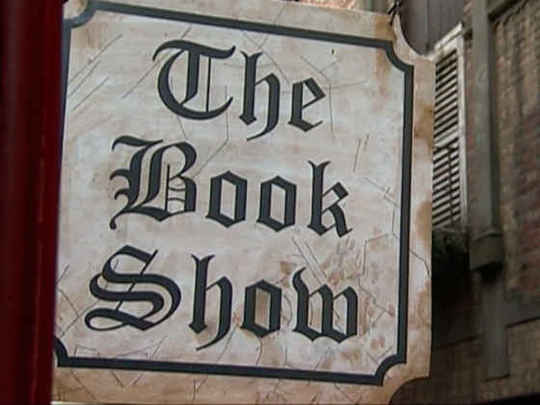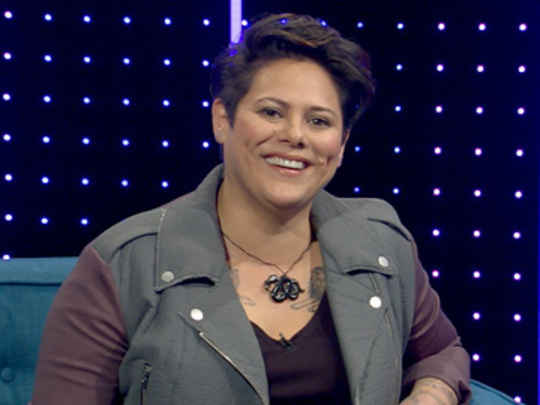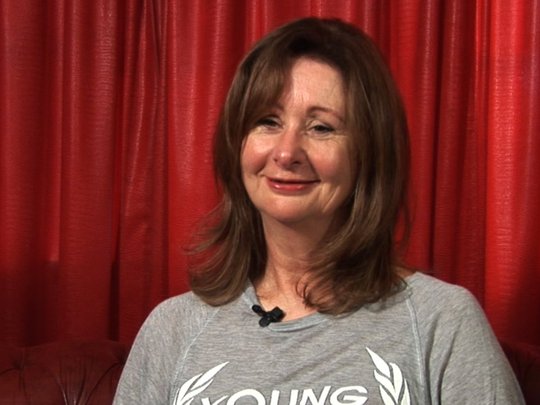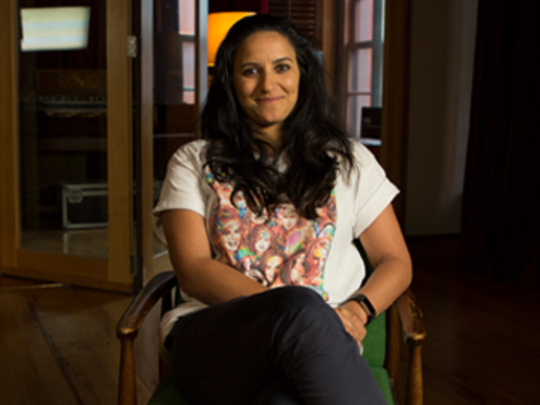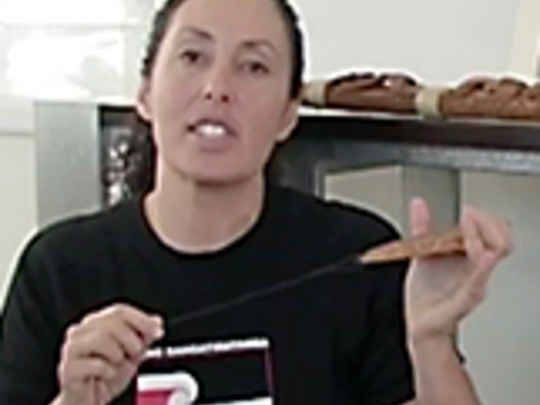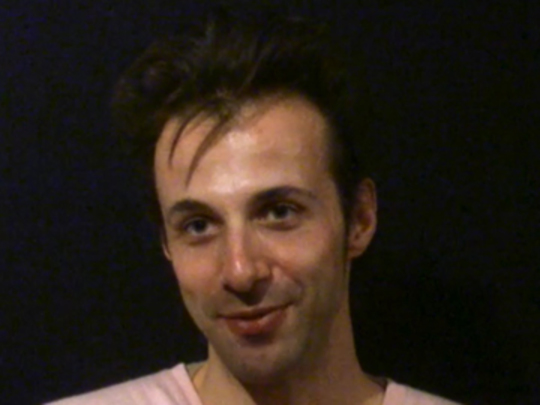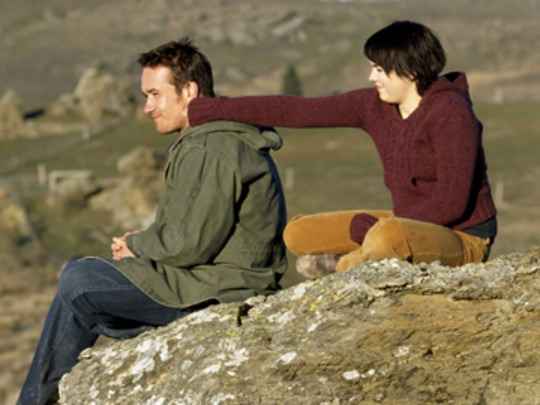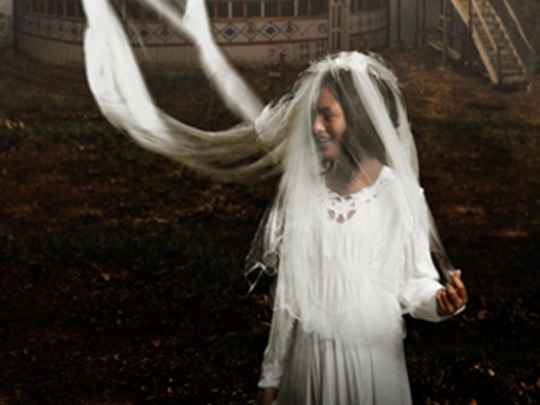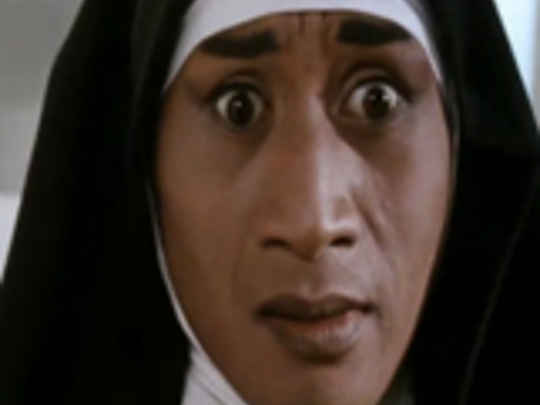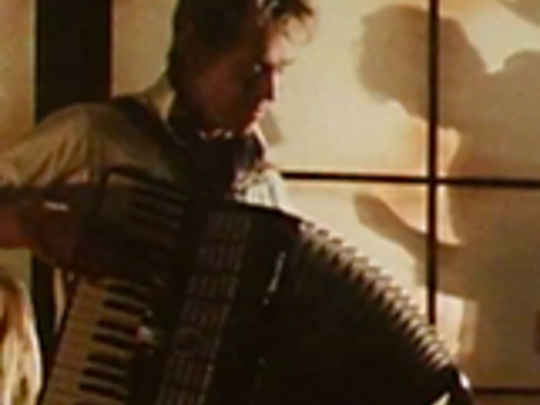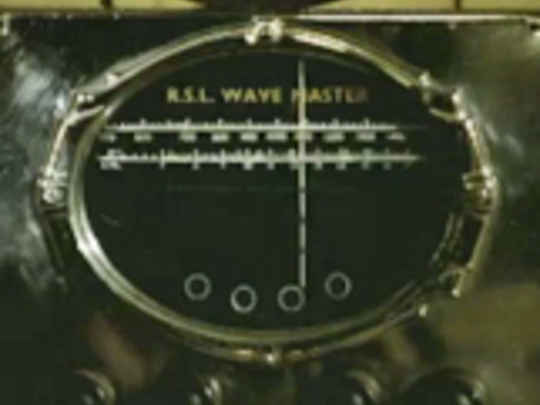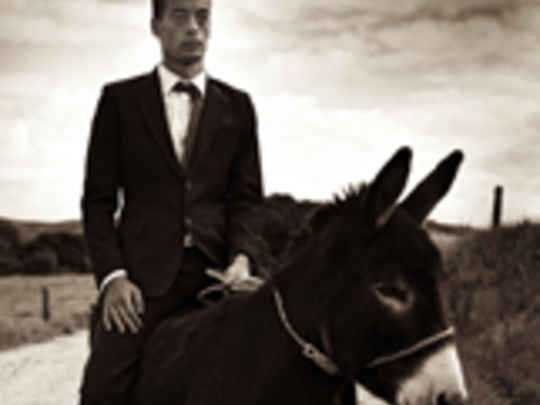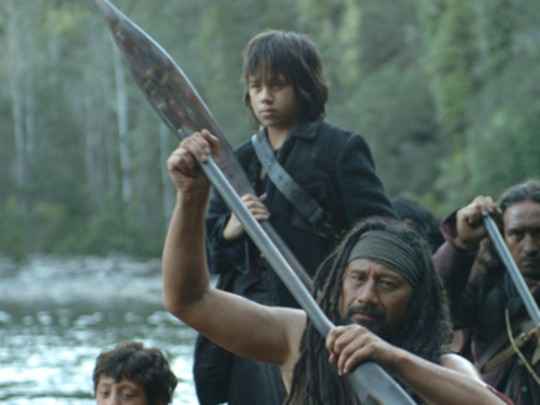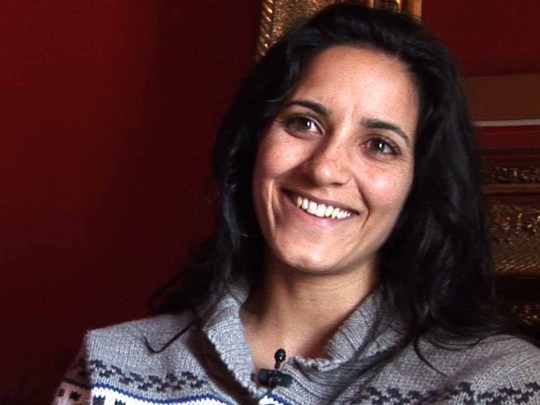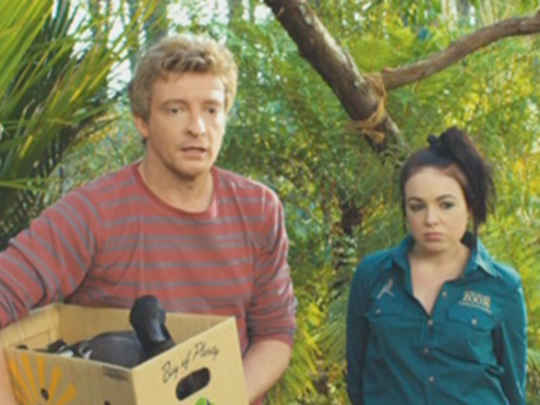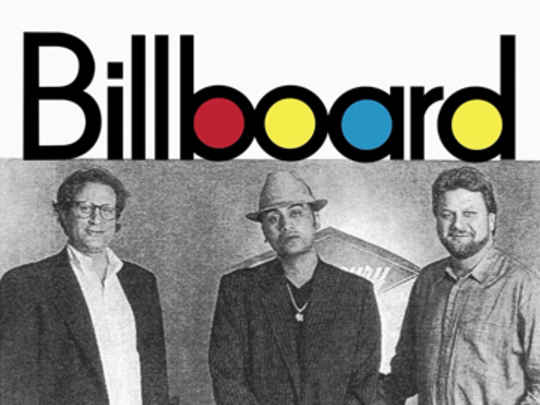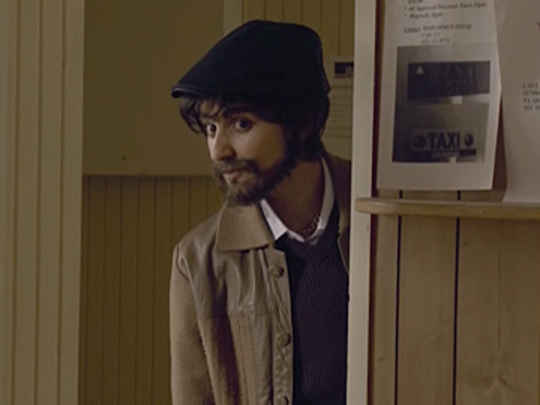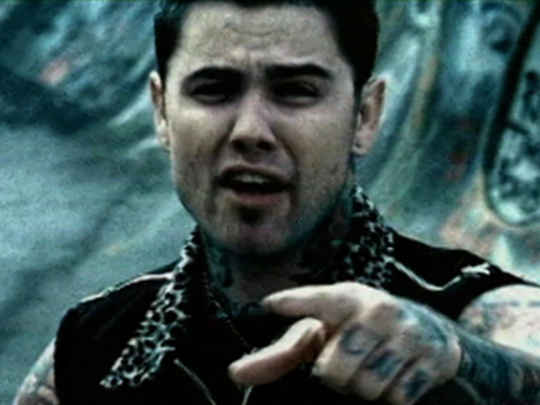1 - Emily Barclay, Dick Frizzell, SJD
2 - Anika Moa, Jonathan Hardy
3- Shonagh Koea, Séraphine Pick, John Chen
4 - Tusiata Avia, Colin McColl, Barry Saunders
5 - John Pule, Tanya Carlson, Dan Sperber Complex
6 - Barry Lett, Ngila Dickson, Lucid 3
7 - Peter Lange, Helen Medlyn
8 - Moana Maniapoto, Lloyd Spencer Davis
9 - Glenn Colquhoun, Florian Habicht, NZTrio
10 - Shona McCullagh, Vincent Ward, Dimmer
11 - Greg Johnson, Emily Perkins
12 - Madeleine Sami, Derek Henderson, Hammond Gamble
13 - Jenny Raven, Tony Astle, The Bleeders
Talk Talk - Series One
Television (Full Length Episodes) – 2008
Every kind of cliché that you hear about that city is quite true.
– Actor Emily Barclay on her view of Los Angeles, early in episode one
The entire cultural creative scene in New Zealand could meet in a space as big as this.
– Artist Dick Frizzell on New Zealand's art scene in the late 1960s, in episode one
I've got to an age where I don't give a shit you know . . . I don't really care how I'm perceived anymore. The people who think I'm a sell-out aren't going to change their mind, and the people who think I'm worthwhile seem to be pretty convinced about that...
– Artist Dick Frizzell, late in episode one
...the first album, six months. The second album, three months, and now this album two months. So soon I'll just be doing an album in an hour...
– Singer Anika Moa on how long it takes to make an album, early in episode two
. . . my father was an art teacher . . . when I was three he was showing me how to draw houses in three dimensions and things. And so I could draw in that kind of way very early on. When I started school, I was doing things I thought was wrong because the other children weren't drawing that way, and I kind of reverted to doing them very flat and two-dimensional.
– Artist Séraphine Pick, in episode three
. . . at about 15 I decided that it just wasn't for girls like me to become writers. . . . girls from Aranui were not entitled to be writers. So it took me a long time to shake that off.
– Poet Tusiata Avia in episode four
As I said, poet, printmaker, novelist. Do you ever know which one comes first? . . . Can you rank them hierarchically?
– Finlay McDonald interviews Niuean artist John Pule, early in episode five
The attitude that prevailed was starting to change . . . This is like the pivotal moment for me. This was the end of the golden weather: that art was moving out of the real supporters and lovers, into a kind of commercial investment stance, and that was the moment that I decided I’ve had enough of this, I have to get out.
– Barry Lett on making the call to stop being an art dealer, in episode six
I still don’t know really what makes me choose the film. But a good conversation with an interesting director will generally get me on a plane going somewhere.
– Costume designer Ngila Dickson on how she chooses the work, at the end of episode six
It's a wish to explore unlikely combinations of things, like making a boat out of bricks, seeing if it floats. I did it as a personal challenge. It ended up being quite a substantial piece of sculpture, by accident almost.
– Sculptor Peter Lange is asked about the humour and irony in his work, in episode seven
The thing that made me realise that this was something that I could do, or liked to do, was taking the bow at the end. And I did that and that's still a fabulous feeling for me even now.
– Opera singer Helen Medlyn on playing a pirate in The Pirates of Penzance at age eight, in episode seven
All they know about me and my group is that we are from New Zealand . . . so you stand or fall on your performance. There seems to be something about our songs and music that kind of connects with them. We use a lot of moving images . . . landscapes, archival footage, Māori artworks, and people kind of respond to those in a positive way.
– Musician Moana Maniapoto on overseas responses to live performances, in episode eight
...it is the one way that we can be sure about the world. Now it doesn’t mean that science is right — it’s very often wrong, but the marvellous thing about science is that it’s self-correcting. You get closer and closer to the truth.
– Author and science communicator Lloyd Spencer Davis describes science, late in episode eight
...I think the biggest thing for me is they're both disciplines that get you knee-deep in the human condition, probably in different ways. One's very solitary, and one's very public.
– Glenn Colquhoun on being both a doctor and a poet, early in episode nine
...in real life I'm such a careful person. Like I don't risk much. You know, when I cross the road, I look seven times. But then filmmaking, it's like 'hey, I can just risk all this stuff' . . . I can take all my risks there and it feels like a safe kind of place to do it.
– Director Florian Habicht on taking risks in filmmaking, in episode nine
...if you’re not that sort of arty type of person I don't think you can be a good chef, because the food is visual. It's also taste, but I mean you do eat with your eyes first of all. And I think arty people make good chefs...
– Chef Tony Astle on what makes a good chef, in episode 13
...there’s lots of other things that are involved in percussion sections. Especially in the 20th century you know, composers have written for weird and wonderful things, including coils from cars, and brake drums — which is literally the brake drum from a car. You can basically use anything as a percussion instrument.
– Percussionist Jenny Raven on the wide range of percussion instruments, in episode 13
I try and democratise the people that I photograph. To me it doesn’t really matter who they are . . . when I'm taking fashion photos, they’re really portraits. Like I'm not so interested in the clothes, I'm more interested in the person's personality and having some empathy with them.
– Photographer Derek Henderson, in episode 12
It’s amazing how many people watched that show and still watch it, and still remember you as your character. I mean I was on the show for one of the smallest amounts of time you can be on there pretty much, but people still remember and come up to me.
– Actor Madeleine Sami on being recognised for a long ago role in Shortland Street, in episode 12
I actually really like getting older. Everything seems a lot less of a worry than it used to. I don't worry about much these days.
– Musician Greg Johnson, early in episode eleven
...I'm not a middle-aged neurotic Englishman, but I do know a few of them . . . . I found it really frighteningly easy to channel him actually.
– Writer Emily Perkins on writing her Novel about My Wife from a man's point of view, in episode eleven
...I actually think that movement is kind of the most primal way to express who you are — you know, your cultural identity, where you come from, how you feel in this moment . . . for me it's a way to say something without defining it in words, which sometimes, I think, can have more eloquence and meaning than words.
– Dancer turned choreographer Shona McCullagh describes dance, at the start of episode 10
Against my wishes we ended up on a winter shoot, because of the availability of the actress.
– Vincent Ward is asked about the famously troubled shoot of River Queen, in episode 10
